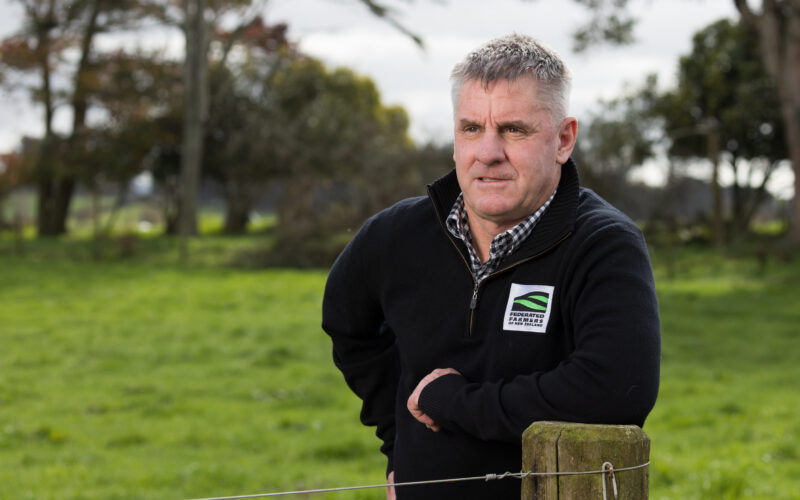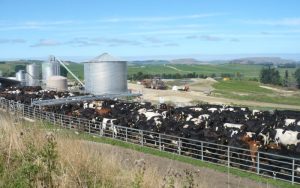
Federated Farmers back new farm plan reforms but warn success hinges on final details.
The Government’s proposed improvements to farm plans are a positive step towards a more practical and affordable solution, but the devil will be in the detail, Federated Farmers says.
“Farm plans have huge potential to cut unnecessary red tape, compliance costs, and consenting requirements for farmers,” Federated Farmers vice president Colin Hurst says.
“A tailored farm planning system that takes a risk-based approach will provide strong environmental protections without the over-the-top bureaucracy we’ve seen in recent years.
“For a farmer, this has the potential to be a game changer, replacing the need for expensive and uncertain resource consents or complex and constantly changing council rules.”
Federated Farmers are welcoming the Government’s intention to have a new farm plan system in place by the end of the year.
“This is a really positive start and will give farmers a lot of confidence in the direction of travel – but there’s still a lot more detail that we’re going to need to see,” Hurst says.
“Farmers are expecting to see the Government have nailed down a streamlined system that is affordable, enduring, and responsive to different catchment priorities.
“They’re making all the right noises – but we’ll be keeping a close eye on the process and engaging with the Government to make sure the system works in practice.”
Hurst is particularly pleased to see Ministers have agreed to reduce the number of farms required to have a plan and to take a risk-based approach to certification.
Until the current Government ordered a ‘pause’ last year, the previous administration was rolling out farm plans for all farms over 20 hectares.
“That was totally over the top and cast the net unnecessarily wide, catching a whole heap of lifestyle blocks that aren’t really commercial farms in the process,” Hurst says.
“Federated Farmers made a strong case that 50ha would be a much more pragmatic threshold. The announcement that fewer farms will be captured by the rules shows we’ve been heard.”
Hurst also welcomes confirmation that farmers won’t need a new plan when they already have an existing industry plan in place that achieves equivalent environment outcomes.
“That’s a huge win for common sense and will cut out a lot of unnecessary cost, duplication and box-ticking for farmers.
“Why should a farmer who has already gone through the process of getting a farm plan through their dairy company, meat processor or regional council have to do it all over again?
“It would have meant a whole lot of cost and paperwork for absolutely no environmental gain – you’d effectively have been doing it to keep some pencil pusher in Wellington happy.”
The new farm plan system will act as an alternative to local council rules and consents where appropriate, allowing farmers to meet requirements in a way that works for their farm system.
“This is where Federated Farmers would like to see the Government go much further to rein in district and regional council bureaucrats,” Hurst says.
“A new farm planning system, combined with a new RMA, presents a huge opportunity for the Government to prevent councils piling on additional rules for farmers.
“Ministers need to make sure councils aren’t just going to add in a heap of restrictions or consent requirements that go over and above what’s required with new national standards.”
One example of where this is a major issue for farmers is with Environment Southland’s Water and Land Plan.
“With farm plans in their original form on pause, Southland farmers not only have to meet onerous requirements of current national standards that are under review but also extra layers of restrictions in the Southland plan,” Hurst says.
“It’s adding huge amount of complexity for farmers down there.”
Questions also remain over the certification of farm plans and who will pay for audits for compliance – two significant issues for farmers.
Hurst says farmers will be looking for assurances over security under the revised farm plan and slimmed down resource management legislation.
“To make investment decisions – like building a new shed or spending $100,000 on upgrading an effluent system – the farmer, and their bank, needs certainty.
“If the farmer has a certified farm plan, and they’re adhering to its conditions, there needs to be a way for them to keep operating with certainty.
“They shouldn’t be at the mercy of the next government, the next tweak of resource management laws, or the next council with grand ideas of changing things up.”
You can now read the most important #news on #eDairyNews #Whatsapp channels!!!
🇺🇸 eDairy News INGLÊS: https://whatsapp.com/channel/0029VaKsjzGDTkJyIN6hcP1K

























